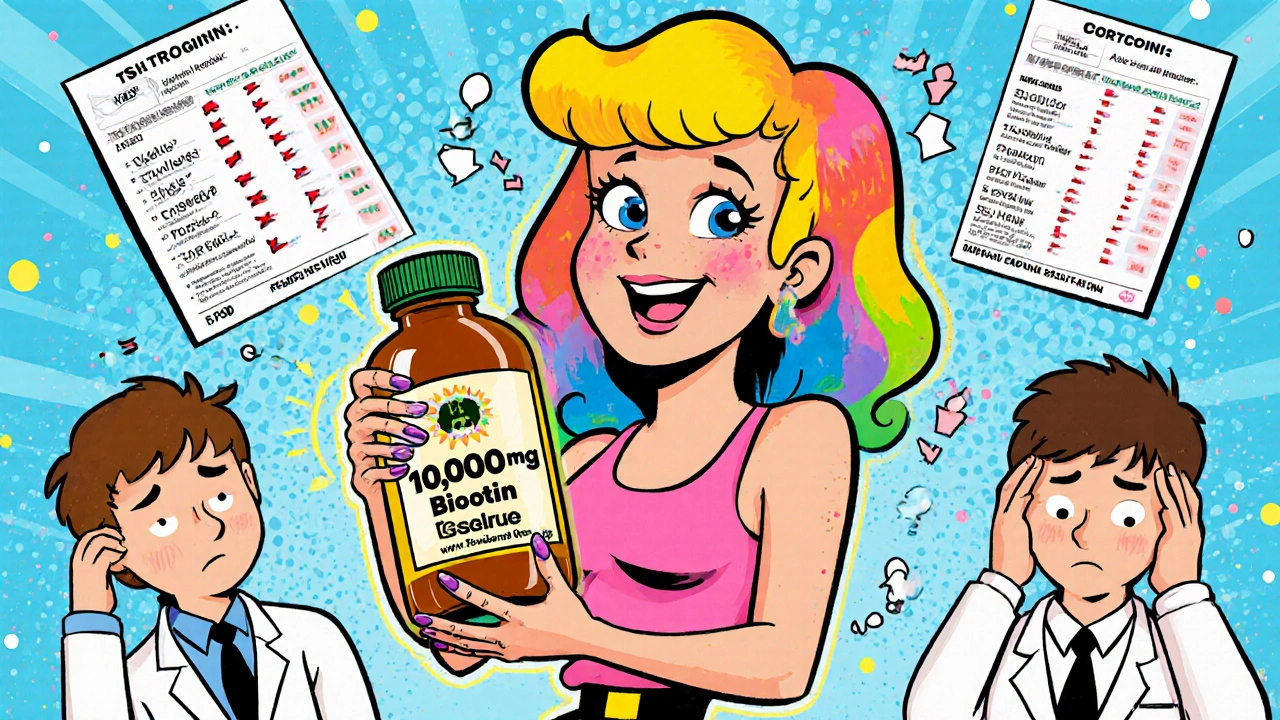Biotin and Thyroid Tests: What You Need to Know
When you take biotin, a B-vitamin often used for hair, skin, and nail health. Also known as vitamin B7, it’s in many supplements and multivitamins. But here’s the catch: high doses of biotin can throw off your thyroid function tests, blood tests that measure TSH, T3, and T4 to check how well your thyroid is working. This isn’t a myth—it’s been confirmed in medical journals and by labs worldwide. People on high-dose biotin (like 5,000 mcg or more daily) often get fake results that look like hyperthyroidism—even if their thyroid is perfectly normal. That can lead to unnecessary meds, more tests, or even wrong treatments.
The problem happens because biotin interferes with how lab machines detect thyroid hormones. Most modern thyroid tests use a method called streptavidin-biotin binding, a lab technique that relies on biotin’s strong grip on streptavidin to capture and measure hormones. When you’ve taken biotin, your blood is full of it, and it floods the test system. The machine can’t tell the difference between the biotin you took and the biotin in the test kit, so it gives you false highs or lows. This isn’t just about thyroid tests—it can also mess with troponin tests (used for heart attacks), vitamin D, and even some cancer markers. If you’re on biotin and your doctor says your thyroid is acting up, ask: "Could this be the supplement?"
You don’t have to quit biotin forever. But if you’re getting thyroid blood work done, stop taking it at least 48 to 72 hours before the test. Some labs recommend 7 days if you’re on very high doses. Tell your doctor you’re taking it—don’t assume they know. And if you’re on thyroid meds like levothyroxine, don’t skip those. Only stop the biotin. The good news? Once you stop, your test results usually return to normal within a few days. This isn’t about fear—it’s about accuracy. Your thyroid results should reflect your body, not your supplement bottle.
Below, you’ll find real-world guides and case-based insights on how supplements like biotin interact with medical tests, what other common meds can skew your results, and how to talk to your doctor about lab interference. These aren’t theoretical discussions—they’re practical fixes from people who’ve been there.
 18 Nov 2025
18 Nov 2025
High-dose biotin supplements can cause dangerous false results in common lab tests like troponin and thyroid panels, leading to misdiagnoses and life-threatening delays in treatment. Know your dose and when to stop before testing.
View More

